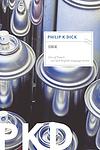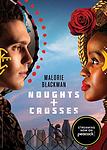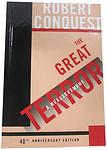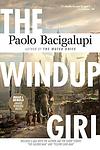The Greatest "Terrorism" Books of All Time
Click to learn how this list is calculated.
This list represents a comprehensive and trusted collection of the greatest books. Developed through a specialized algorithm, it brings together 284 'best of' book lists to form a definitive guide to the world's most acclaimed books. For those interested in how these books are chosen, additional details can be found on the rankings page.
Genres
The category of "Terrorism" in books encompasses works that explore the use of violence and intimidation to achieve political or ideological goals. These books may delve into the motivations and tactics of terrorist groups, the impact of terrorism on individuals and societies, and the efforts to prevent and respond to terrorist attacks. The genre may include both fiction and non-fiction works, providing readers with a range of perspectives on this complex and often controversial topic.
Countries
Date Range
Reading Statistics
Click the button below to see how many of these books you've read!
Download
If you're interested in downloading this list as a CSV file for use in a spreadsheet application, you can easily do so by clicking the button below. Please note that to ensure a manageable file size and faster download, the CSV will include details for only the first 500 books.
Download-
1. Fahrenheit 451 by Ray Bradbury
In a dystopian future where books are banned and burned by the government to prevent dissenting ideas, a fireman named Guy Montag, whose job is to burn books, begins to question the society he serves. After a series of events, including meeting a free-thinking teenager and witnessing a woman choosing to die with her books, Montag begins to secretly collect and read books, leading to his eventual rebellion against the oppressive regime. The narrative serves as a critique of censorship, conformity, and the dangers of an illiterate society.
-
2. Demons by Fyodor Dostoevsky
"The Possessed" is a complex political novel set in a provincial Russian town, exploring the destructive influence of radical ideologies on society. The narrative revolves around a group of revolutionaries, their philosophical debates and their destructive actions, driven by nihilism and anarchism. The story is a critique of the political and social chaos of the time, showcasing the author's deep understanding of human psychology and his profound insights into the human condition. It is an exploration of faith, reason, and the nature of freedom and is considered one of the most significant works of Russian literature.
-
3. Ubik by Philip K. Dick
Set in a futuristic world, the novel follows Joe Chip, a technician at a psychic agency, who becomes trapped in a reality-altering phenomenon after a mission on the Moon goes wrong. As his reality begins to unravel, Chip and his colleagues find themselves in a bizarre world where time seems to be moving backward and a mysterious product called "Ubik" appears to be the only thing that can save them. The book explores themes of reality, entropy, and human perception in a surreal and often humorous manner.
-
4. Noughts and Crosses by Malorie Blackman
"Noughts and Crosses" is a thought-provoking novel set in a dystopian society where racial segregation is reversed. It follows the lives of two main characters: a girl from the ruling class (Crosses) and a boy from the underclass (Noughts). Despite their different backgrounds, they form a deep bond that eventually turns into a romantic relationship, challenging the societal norms and prejudices. The novel explores themes of love, racism, and power, offering a poignant commentary on the repercussions of societal divisions.
-
5. Under Western Eyes by Joseph Conrad
Set in St. Petersburg and Geneva, the novel follows a young Russian student named Razumov who becomes embroiled in revolutionary politics after unwittingly helping a fellow student who has assassinated a high-ranking official. Struggling with his own beliefs and loyalties, Razumov is sent to Geneva as a spy, where he becomes entangled with the exiled revolutionaries, including a woman named Haldin. The novel explores themes of identity, betrayal, and the ideological divide between East and West.
-
6. The Looming Tower by Lawrence Wright
"The Looming Tower" is a comprehensive historical examination of the events leading up to the 9/11 terrorist attacks on the United States. It delves into the origins of Al-Qaeda, the rise of Osama bin Laden, and the failure of U.S. intelligence agencies to prevent the attacks. The narrative is extensively researched and provides a detailed account of Islamic fundamentalism, the complex politics of the Middle East, and the role of the United States in the region. The book also explores the personal stories of key figures on both sides of the conflict.
-
7. The Great Terror by Robert Conquest
"The Great Terror" is a comprehensive analysis of Joseph Stalin's purges in the Soviet Union during the 1930s. The book delves into the brutal and systematic elimination of potential political rivals, intellectuals, and ordinary citizens, who were falsely accused of espionage, sabotage, or being counter-revolutionary. It provides a detailed account of the show trials, executions, and forced labor camps, shedding light on one of the darkest periods in Soviet history.
-
8. The Witness by Juan José Saer
"The Witness" is a novel that explores the life of a young European boy who is the only survivor of a shipwreck in the 16th century. He is found and raised by a tribe of Indians in South America, where he spends ten years of his life. The boy is eventually found by a band of Spanish conquistadors and returns to Europe, where he becomes a well-respected scholar. The story unfolds as the man, now in his 90s, recounts his experiences and struggles to reconcile his European identity with his decade-long immersion in the tribal culture.
-
9. Stormbreaker by Anthony Horowitz
A 14-year-old boy named Alex Rider is suddenly thrust into the world of espionage after his uncle's mysterious death. Trained by MI6, he is sent on a dangerous mission to investigate a billionaire businessman who plans to distribute lethal viruses through computers. Using his wits and skills, Alex must stop this nefarious plan and save the world.
-
10. The 9/11 Commission Report by 9/11 Commission
This book is a comprehensive, detailed account of the events leading up to the September 11, 2001 terrorist attacks on the United States, the attacks themselves, and the immediate aftermath. It was compiled by a bipartisan commission and offers an in-depth analysis of the systemic failures that allowed these attacks to occur. The report also provides recommendations for preventing future terrorist attacks, emphasizing the need for improved intelligence and security measures.
-
11. The Forever War by Dexter Filkins
"The Forever War" is a non-fiction account of the conflicts in Afghanistan and Iraq from a journalist's perspective. The author, who was embedded with American troops, provides a raw and unfiltered look at the realities of war. The book gives a detailed description of the experiences of soldiers, civilians, and the author himself, offering a unique perspective on the ongoing conflicts. It explores the complexities and consequences of war, and the impact it has on those directly involved and the wider world.
-
12. Say Nothing by Patrick Radden Keefe
This book is a gripping exploration of the Troubles in Northern Ireland, focusing on the disappearance of Jean McConville, a mother of ten who was abducted by the Irish Republican Army (IRA) in 1972. The narrative weaves together the stories of several key figures in the IRA, including Dolours Price, an IRA member who became disillusioned with the organization, and Brendan Hughes, a former IRA commander. The book delves deep into the political and personal complexities of the conflict, revealing the long-lasting trauma and moral ambiguities that continue to haunt those involved.
-
13. The Dark Side by Jane Mayer
"The Dark Side" by Jane Mayer is a non-fiction book that explores the use of torture and other controversial tactics by the United States government in the aftermath of the 9/11 attacks. Mayer details the decision-making process behind the use of enhanced interrogation techniques, and the legal and ethical debates surrounding them. She also examines the impact of these tactics on the individuals who were subjected to them, as well as the broader implications for American democracy and human rights. The book draws on extensive research and interviews with key players in the Bush administration, as well as classified documents and memos.
-
14. The Association Of Small Bombs by Karan Mahajan
"The Association of Small Bombs" by Karan Mahajan is a novel that explores the aftermath of a bomb blast in Delhi, India. The story follows the lives of two families affected by the tragedy, as well as the bomber himself. Through their perspectives, the novel delves into themes of grief, revenge, and the complexities of terrorism. Mahajan's writing is both intimate and expansive, offering a nuanced portrayal of the human impact of violence.
-
15. The Windup Girl by Paolo Bacigalupi
Set in a future Thailand amidst a world ravaged by climate change and depleted resources, the story unfolds in a bustling city where biotech corporations vie for supremacy. The narrative centers around a genetically engineered "New Person," known as the Windup Girl, who is trapped in a life of servitude and exploitation. As the city teeters on the brink of political and environmental collapse, the fates of various characters—including a foreign energy investor, a disgraced geneticist, and a street-smart refugee—intertwine with that of the Windup Girl. Together, they navigate a treacherous landscape of corporate greed, oppressive government, and social upheaval, in a desperate search for survival and redemption in a world where every action has unforeseen consequences.
-
16. Ghost Wars by Steve Coll
"Ghost Wars" is an in-depth exploration of the complex history of Afghanistan from the Soviet invasion in 1979 to just before the terrorist attacks of September 11, 2001. The book provides an intricate account of the CIA's role and America's foreign policy in Afghanistan, the rise of the Taliban, and the emergence of Osama Bin Laden. It also details the numerous missed opportunities to capture or kill Bin Laden, and the failure to prevent the 9/11 attacks.
-
17. The Testament Of Jessie Lamb by Jane Rogers
"The Testament of Jessie Lamb" by Jane Rogers is a thought-provoking dystopian novel set in a world where a deadly virus threatens to wipe out humanity. Jessie Lamb, a sixteen-year-old girl, is determined to make a difference and save the future by volunteering for a controversial medical experiment that could potentially save the human race. As she navigates the ethical dilemmas and sacrifices that come with her decision, Jessie explores the complexities of love, sacrifice, and the value of life in a world on the brink of extinction.
-
18. Black Flags: The Rise of ISIS by Joby Warrick
This book provides a detailed account of the rise of the terrorist group ISIS. The narrative delves into the history of the group, tracing its roots back to a Jordanian street thug, Abu Musab al-Zarqawi, who morphed into a jihadist leader. It also explores the geopolitical conditions and missteps by world leaders that allowed the group to grow in power and influence. The book offers an in-depth look at the personalities and events that contributed to the emergence of one of the most notorious terrorist organizations in the world.
Reading Statistics
Click the button below to see how many of these books you've read!
Download
If you're interested in downloading this list as a CSV file for use in a spreadsheet application, you can easily do so by clicking the button below. Please note that to ensure a manageable file size and faster download, the CSV will include details for only the first 500 books.
Download
















